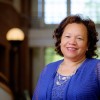This article is more than 5 years old.
The 2010 Library Assessment Conference themed, Building Effective, Sustainable, Practical Assessment, is the third in a series of planned conferences devoted to building an assessment culture and community within libraries. Held every two years, the conference is co-sponsored by the Association of Research Libraries (ARL), the University of Virginia and the University of Washington. This years’ conference attendance was capped at 460 with almost as many waitlisted. The 2012 conference will return back to the University of Virginia, home of the first conference.
This morning’s opening session featured Fred Heath from the University of Texas, who gave an overview of the major library assessment initiatives over the past century. From its chaotic beginnings to its adoption by ARL, assessment efforts continue to improve. Heath paid tribute to several pioneers, acknowledging significant contributions down through the years.
“Are They Learning? Are We? Learning Outcomes & the Academic Library,” was the selected topic given by the second opening keynoter, Megan Oakleaf. According to Oakleaf, librarians face a new assessment challenge. We must demonstrate the impact of academic libraries on student learning. Librarians should begin the process with a list of desired outcomes. These outcomes should describe what they want students to learn and then how this intersects with institutional and departmental goals. Oakleaf suggest the following six questions are most relevant to the assessment challenges faced by librarians today. 1) How committed are librarians to student learning? 2) What do librarians want students to learn? 3) How do librarians document student learning? 4) How committed are librarians to their learning? 5) What do librarians need to learn? 6) How can librarians document their own learning?
The afternoon sessions were ninety minutes long and featured three different presenters, each giving brief overviews. The first of these shared a focus on the use of rubrics in the assessment process. UNCG’s Kathy Crowe used a rubric to score worksheets used within a Communication Studies upper level course. This department had a long standing relationship with the library, but faculty members continued to be frustrated with the quality or resources selected and the student’s poor citation skills. As a result of the worksheet scores, changes were implemented that resulted in dramatically improved performance.
The third session entitled “But What Did They Learn? What Classroom Assessment Can Tell You about Student Learning,” compared typical course evaluations with a classroom assessment technique called the “minute paper.” Common techniques tend to reveal if students are satisfied with the classroom instruction, but rarely do they reveal what the student learned. The “minute paper” approach asks two questions. 1) Name one useful thing you learned? 2) Name one thing you’re still confused on?
The second parallel session I attended focused more on general academic library assessment. I was most impressed with the University of Mississippi’s campus wide assessment program. This program required all campus units to submit biannual reports which have to include at least three objectives with multiple means of assessment for each objective. The program also requires that the campus unit develop changes to their operations based on the assessment. The program specifically prohibits lack of funding as a rationale for not making necessary improvements.
Unlike most conferences, planners carved out tonight for dinner and poster sharing. I found this approach very nice. I was able to view the eighty plus posters with ease, have several meaningful conversations with colleagues and enjoy a splendid dinner buffet. I’ll share more later.
Wanda

4 Comments on ‘Assessment in Libraries Conference’
So far, so good! Thanks for the first report.
The “minute paper” sounds like the “fuzziest point” that Sarah and I have used in Lib 220. It is an easy way to determine what you have managed to get them to learn and what you still need to spend time on. Thanks, Wanda. I think the Assessment Committee has its work cut out for it.
Yes, I think Lauren P. uses the minute paper technique as well. I know we’ll be interested in anything you bring back about assessing student learning that we might consider when establishing our own assessment processes.
Thanks so much for this great overview and thoughtful synopses. For me the hardest part of programmatic assessment is the development of appropriate metrics — ones that tell you what you really want to know and that aren’t so cumbersome that one resents the measurement process. I bet you got some good ideas.